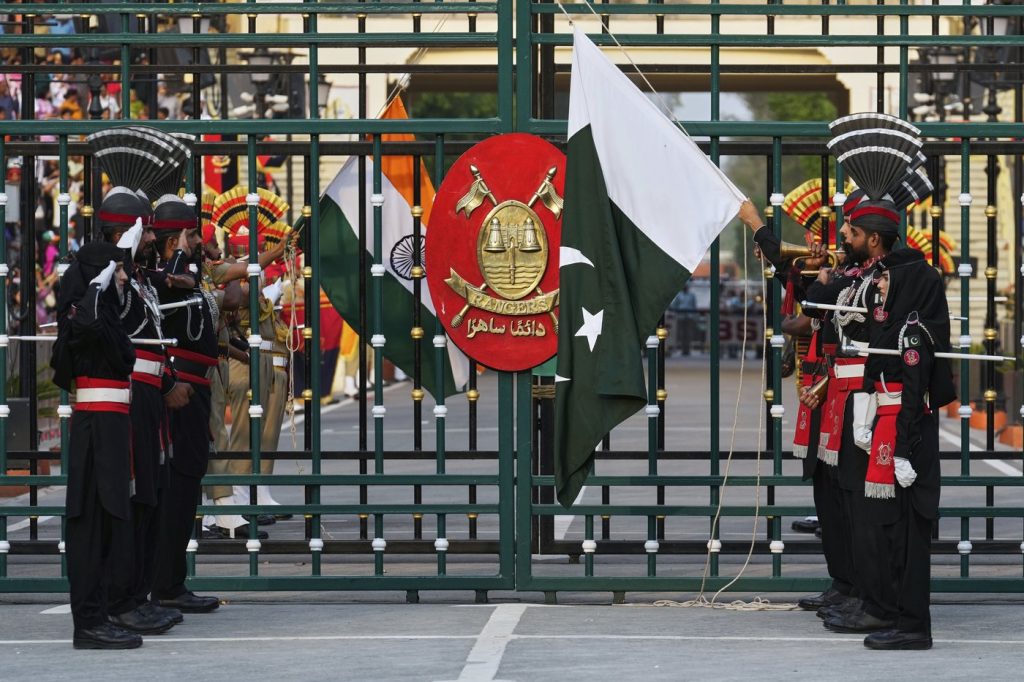NEW DELHI (AP) – Tensions between India and Pakistan have escalated following a massacre in Indian-controlled Kashmir on April 22, which resulted in the deaths of 26 people, primarily Indian Hindu tourists. India has accused Pakistan of supporting the gunmen behind the attack, labeling it a terror incident, while Islamabad denies these claims. In the wake of this crisis, both nations have initiated military and diplomatic measures, raising concerns of potential conflict between the nuclear-armed countries.
The diplomatic fallout has been swift, with India and Pakistan expelling each other's diplomats and nationals. Borders have been closed, and airspace has been shuttered. Significant developments include India suspending a vital water-sharing treaty with Pakistan. Additionally, a Pakistani minister announced that they possess "credible intelligence" indicating an imminent Indian strike; however, India has not yet taken military action.
In response to the attack, world leaders have urged both nations to de-escalate tensions, with the United Nations Security Council scheduled to hold closed consultations to address the situation. Countries such as the U.S., China, Russia, and Saudi Arabia have called for restraint on both sides, while Iran has offered to mediate in the crisis.
Both India and Pakistan are engaging in aggressive diplomatic outreach to garner support for their respective positions. India aims to present evidence linking the attack to cross-border terrorism to its global partners, hoping to justify any potential military actions. According to Harsh Pant, head of foreign policy at the Observer Research Foundation in New Delhi, India is working to ensure that its actions have international backing.
Conversely, Pakistan has expressed its willingness to cooperate with an international investigation into the attack while reaffirming that it would respond decisively to any military actions taken by India. The tense atmosphere has led to increased military activities; reports indicate that both countries have engaged in gunfire exchanges along the Line of Control, which serves as the de facto border in Kashmir.
Following the tragedy, Indian forces have intensified operations in Kashmir, launching extensive searches for the attackers. Reports state that upwards of 2,000 individuals have been detained for questioning, some under anti-terrorism legislation that allows for detention without formal charges. Indian forces have also reportedly demolished at least nine family homes of suspected rebels, exacerbating fears and anxiety among the local population in Kashmir.
Praveen Donthi, a senior analyst with the International Crisis Group, noted that Kashmiris are often the first to suffer during rising political and military tensions between India and Pakistan. He remarked that the punitive measures imposed on Kashmiris could further inflame the ongoing conflict, as collective punishment only deepens the cycle of violence and retaliatory actions.
In a show of military strength, Pakistan has recently test-fired a short-range missile, marking its second test launch in just a few days, as tensions continue to loom. Meanwhile, India's navy has also conducted missile tests. The situation remains precarious, as a similar skirmish in 2019 nearly led to a larger confrontation, which was averted through U.S. intervention.
As this volatile situation unfolds, the international community watches closely, aware of the potential ramifications of rising tensions between two nations with nuclear capabilities.











